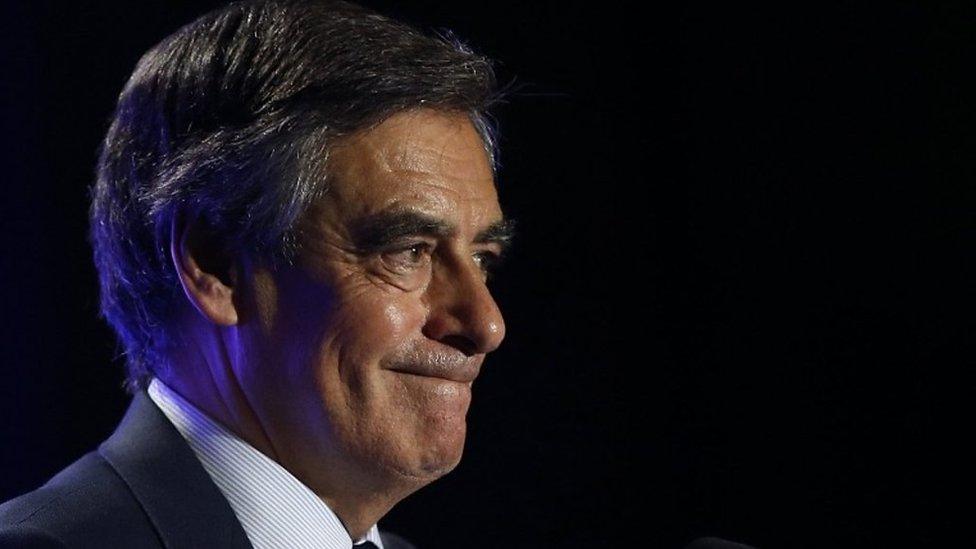French candidate Fillon takes populist tone in campaign to fight back
- Published
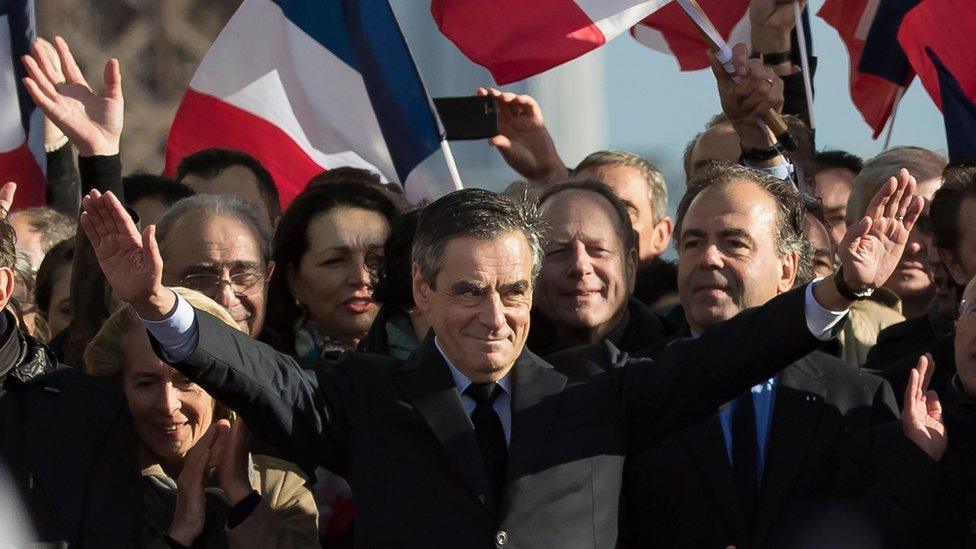
Francois Fillon has clung to his core support base as the "fake jobs" affair has escalated
French presidential candidate Francois Fillon has avoided an abrupt end to his campaign by securing the support of his divided Republican Party.
For weeks he has come under pressure to step down as investigations continue into allegations that his wife was paid large sums of public money for a job she did not do.
But having won a battle with his centre-right party, what now are Mr Fillon's chances in the fight for the Elysee Palace?
He will have his work cut out if he is to claw back the lead he once held in France's presidential race. The latest opinion poll on Tuesday placed him third, on 19%, external, several points behind centrist Emmanuel Macron and Marine Le Pen of the far-right National Front.
Mr Fillon has stuck fast to his hard-core base for the past six weeks, as an investigation into his wife's employment whipped up a storm around his campaign.
As centrist supporters deserted him in droves, he barely blinked.
When his campaign manager and senior spokesman quit, Mr Fillon brushed it aside.
When dozens of MPs deserted him, he retorted that he would do without them all.
When polls suggested that he would struggle to reach the second round run-off, Mr Fillon ploughed on, determined to show that he retained the support of his most loyal followers.
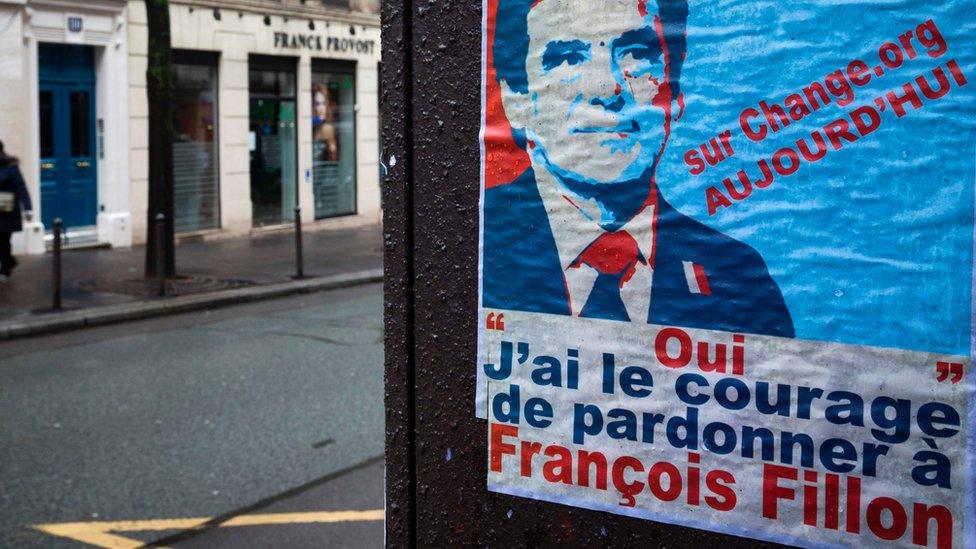
A poster in support of Fillon's candidacy says: "Yes, I have the courage to forgive Francois Fillon"
In that sense, his management of the scandal seems to have been a success.
Tens of thousands of people turned out in the rain to rally around him on Sunday. But his handling of the allegations against him, and the media attention surrounding them, have also marked a sharp change in tone for France's most establishment presidential candidate, with new tactics borrowed from the populist playbook.
Sunday's rally was initially described by Mr Fillon as a protest against political interference in the judiciary. He has complained of an "institutional coup d'etat", suggesting that the Socialist government is behind the allegations currently being investigated.
At press conferences recently he has presented himself as the victim a "political assassination", of a "lynching" by the media, and he has accused investigators of leaking only one side of the evidence in his case.
Mr Fillon has said he will leave it up to the voters to judge him, not a "biased [judicial] process".
But attacking the nation's institutions while running for office has not gone down well with some party colleagues. Former Prime Minister Dominique de Villepin, on French radio, called it "dangerous" and "irresponsible".
The man Mr Fillon beat to become Republican candidate, Alain Juppe, accused him of leading the campaign into an impasse. "He had a wide open road before him," he said. "What a waste."

Tens of thousands of supporters attended Sunday's rally at the Trocadero, but not as many as claimed
There was a sceptical response, too, to the claim by Mr Fillon's team that Sunday's rally had drawn 200,000 people to the Trocadero in Paris.
Several journalists remarked that the plaza only held around 35,000 people when full. The claim of 200,000 is still prominently featured on Mr Fillon's campaign website.
There is now talk of a "Trumpisation" of the centre-right candidate, with several commentators and news outlets comparing him to the US president.
It is a very different side of a politician many saw as calm, unruffled and rather phlegmatic; "impervious to demagoguery and exaggeration", as Le Monde put it.
But will the same tactics work to win back the broader votes he needs in the election itself?
Mr Fillon might claim legitimacy from the people, but he is still a risk for his party. He is due to appear before a judge on 15 March and says he expects to be placed under formal investigation.
Attacking the media, government and judiciary might work with his most loyal supporters, but it has driven many other voters away.
If this is the new face of Francois Fillon, some might wonder what that says about the future of French politics itself.
- Published29 March 2017
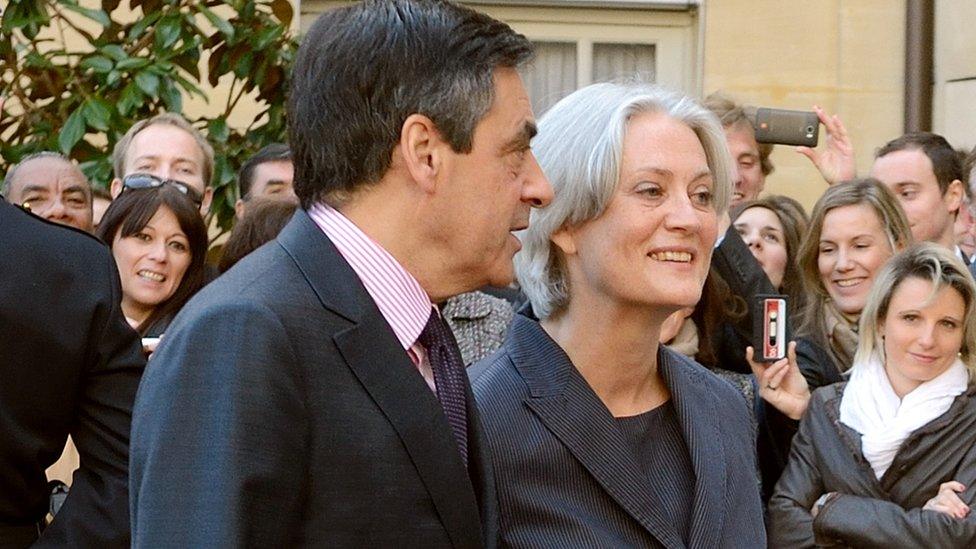
- Published6 March 2017
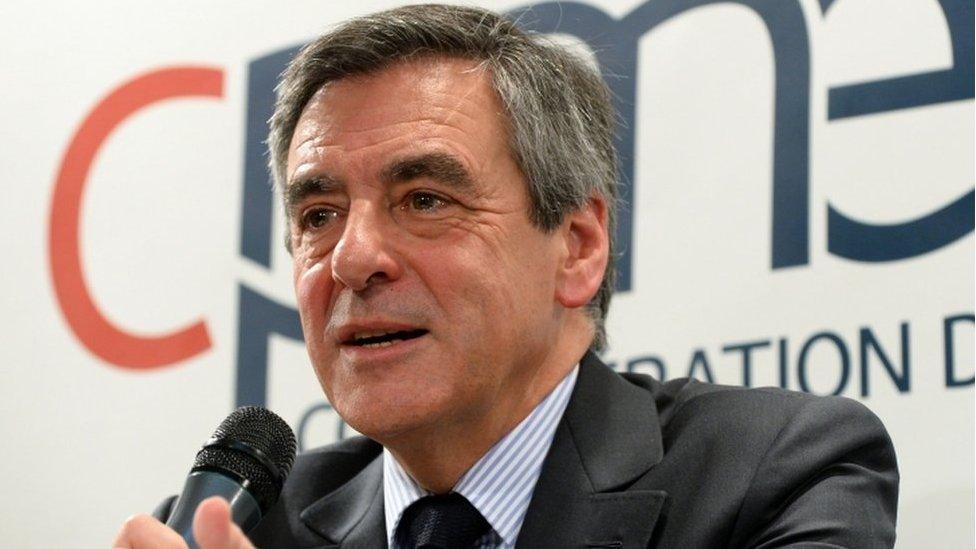
- Published8 March 2017

- Published4 March 2017
